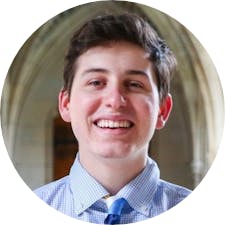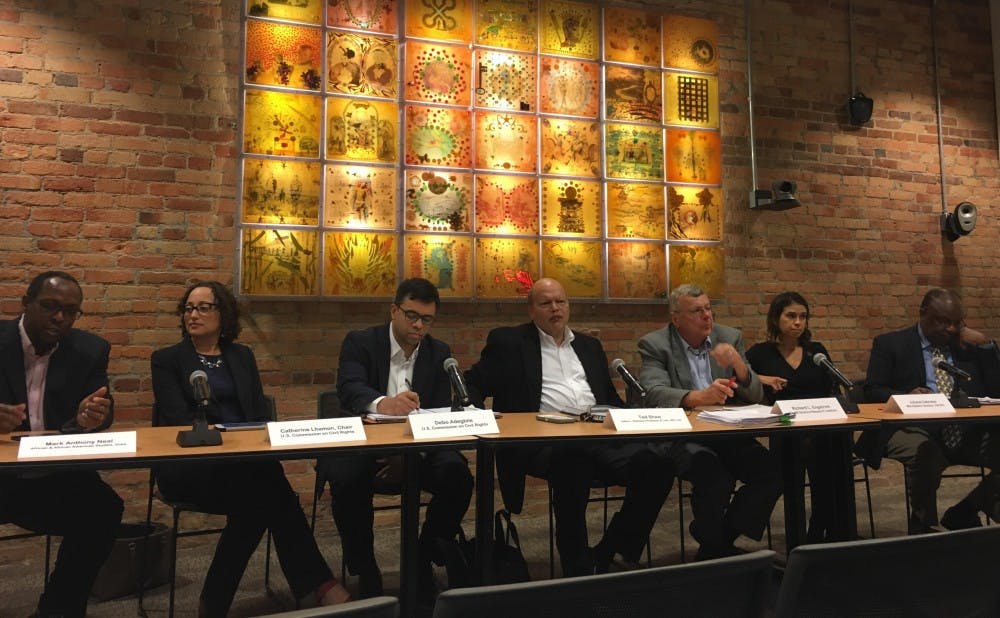Voting rights is a hot-button issue right now, especially in North Carolina, which is why leading experts came together Thursday evening to impart their wisdom on the subject.
The seven-member panel met at Smith Warehouse to discuss voting challenges across the United States and North Carolina in anticipation of a public hearing Friday in Raleigh held by the U.S. Commission on Civil Rights on the same issue.
"The reality for us is that when we are talking about voting rights we are not only talking about the mechanics of how do you vote but we are talking about who someone is in a democracy and whom you're going to participate with in a democracy," said Catherine Lhamon, chair of the U.S. Commission on Civil Rights.
The two topics most frequently discussed throughout the forum were the Voting Rights Act of 1965 and gerrymandering, the process of drawing districts to favor certain groups.
The Voting Rights Act is a key piece of civil rights legislation—possibly the "crown jewel," noted Ted Shaw, Julius L. Chambers distinguished professor of law and director of the Center for Civil Rights at the University of North Carolina School of Law.
"One of the important things about the Voting Rights Act (VRA) is that it is a story of American history," said Debo Adegbile, a commissioner on the US Commission on Civil Rights. "The issues we face today have deep roots in our history and for that reason it's important to consider the present manifestations and from where we've come."
One of those present manifestations Adegbile discussed was the effects of the Supreme Court case Shelby County v. Holder. Before the case, the VRA required districts with histories of racial discrimination to get federal approval before making any changes to their voting procedures. However, the Court struck down that section, which meant that "the burden was shifted to voters to dislodge voting laws," he said.
Shaw supported the VRA but noted its failures to reduce racially polarized voting, where different racial groups as a bloc support different candidates. He cited Louisiana as an example of racially polarized voting, where David Duke—the former Grand Wizard of the Ku Klux Klan—won the majority of white votes when he ran for governor of Louisiana in 1991. He also stressed that voting districts need to be redrawn to prevent all-white or all-minority packed districts.
Richard Engstrom, faculty affiliate at Duke's Social Science Research Institute, focused his speech on the difficulties lawyers have had proving and adjudicating gerrymandering.
"Gerrymandering is a lot like pornography," he said. "You know it when you see it but it's awfully hard to define. When I say it's hard to define, I mean it's hard to measure."
Historically, judges have thrown out gerrymandering cases, but Engstrom mentioned how the courts have started to take these cases seriously thanks to advanced measuring methods. He referenced Jonathan Mattingly, chair of the mathematics department at Duke, who has exposed the gerrymandering tactics of the North Carolina state legislature with a computer program that drew thousands of districts. As excited as Engstrom was for this method, he expressed pessimism that Chief Justice John Roberts—who called similar models "sociology gobbledygook"—will accept scientific findings in upcoming gerrymandering cases.
During his first response, Adegbile told the story of Vernon Dahmer, a civil rights activist from Mississippi. He was a successful businessman with a large grocery store, and he would help his customers get out to the polls and vote. Unfortunately, Adegbile said, the Ku Klux Klan burned Dahmer's house down, causing Dahmer to suffer severe burns and die in the hospital. On his gravestone, Dahmer had a quote inscribed that the panelists echoed throughout the forum.
"If you don't vote, you don't count."
Get The Chronicle straight to your inbox
Signup for our weekly newsletter. Cancel at any time.

Jake Satisky was the Editor-in-Chief for Volume 115 of The Chronicle.

